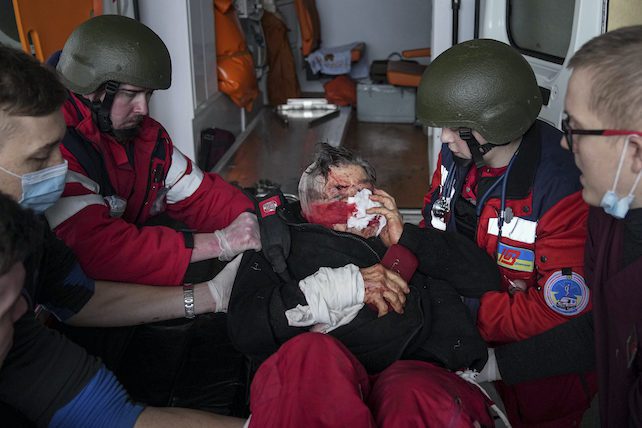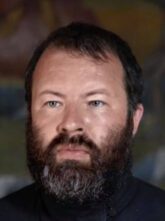Kordochkin stressed the open letter was not directed at religious authorities such as Kirill, saying he didn’t believe “state authorities consult with a higher hierarchy before they do something.” But the signers, he said, wanted to push back on the notion that the Russian Orthodox Church “only has one voice.”
Kordochkin said some have complained the language was “not radical enough,” but explained any dissent under the current Russian regime carries risk. This is especially true for priests who live and work in Russia, which he estimated made up the majority of the signers.
“For any priest who signed it, wherever he is — whether he’s in Russia or whether he’s abroad — I think that he puts himself under certain pressures,” he said. “The reaction to any kind of specific protest is very aggressive.”
He added: “Any priest who lives in Russia who is signing such a letter — it’s a sign of courage. But therefore, when he does it, it is also an important event in his own life.”
Kristina Stoeckl, sociology professor at Austria’s University of Innsbruck and expert on the Russian Orthodox Church, pointed out that the letter was carefully phrased: It avoided the words “war” or “invasion,” while the Russian government itself has termed its action a “special military operation.”
Stoeckl said that other recent open letters by Orthodox priests — particularly one pushing back on the treatment of Russian protesters in 2019, which Kordochkin also signed — were more forceful, spurring condemnation from Russian Orthodox Patriarch Kirill of Moscow.
The most recent letter doesn’t represent a “revolt” against the patriarch on its own, but rather “a call for peace,” she said.
However, she noted that it comes as more overt forms of dissent among Russian Orthodox priests have emerged in Ukraine over the past week. According to OrthoChristian, Ukrainian clerics still loyal to Moscow, particularly in Western Ukraine, have stopped commemorating Patriarch Kirill in their liturgies.
On Monday, Metropolitan Archbishop Evlogy of the Sumy Diocese in Eastern Ukraine published a Facebook post signed by 28 priests and deacons lamenting that Kirill “did not condemn the aggressive actions of the Russian authorities in any way” but rather issued a statement last week calling on “all parties to the conflict to do everything possible to avoid civilian casualties.”
“In this difficult situation, guided by the dictates of our pastoral conscience, we have decided to stop commemorating the Moscow Patriarch at divine services,” read the statement. “This decision was also dictated by the demands of our flock, which, alas, no longer wants to hear the name of Patriarch Kirill in our churches.”


